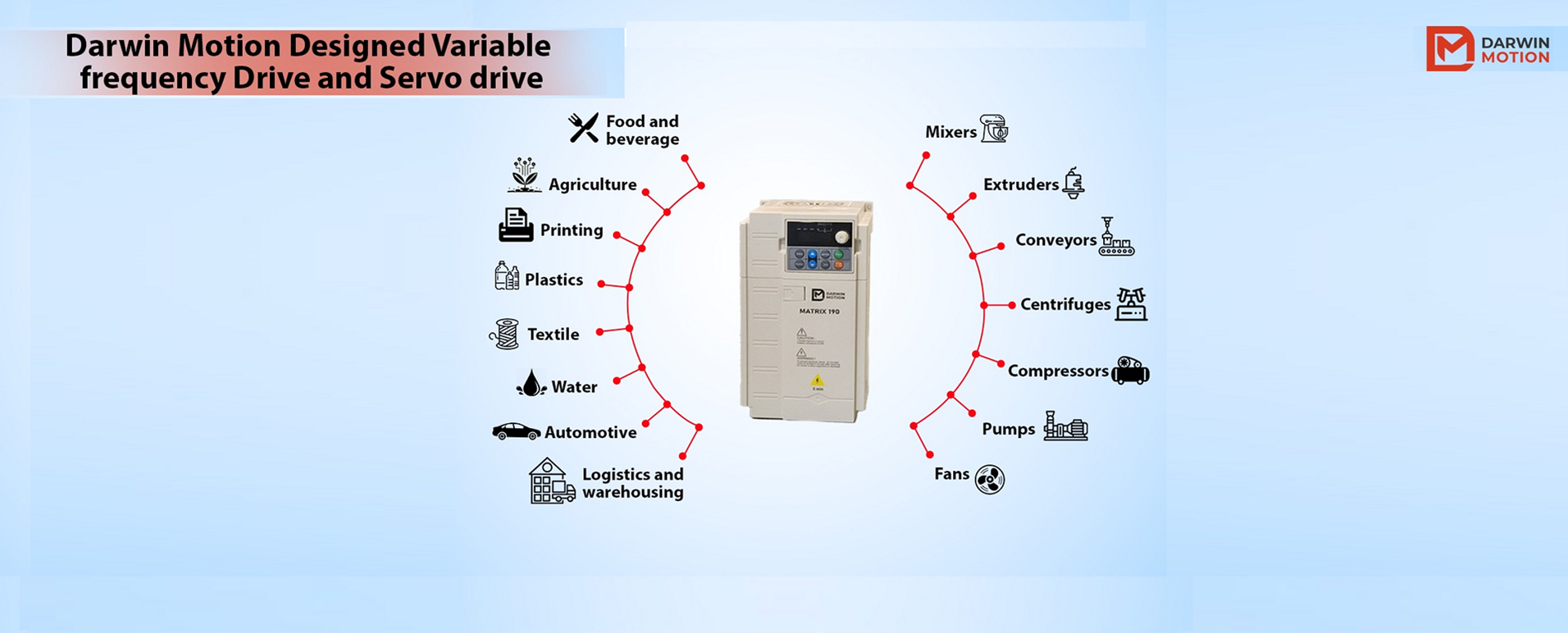Posted on 7th Aug 2024

In the realm of industrial automation and precision control, servo drives play a pivotal role in optimizing performance and enhancing efficiency. As versatile components that regulate the motion of servo motors, these drives are integral to a wide range of applications, from robotics to aerospace. This article explores how servo drives can be adapted to meet the demands of various industries and applications, highlighting their importance and versatility.
Servo drives are electronic devices that control the motion and position of servo motors, ensuring precise and accurate performance. They interpret signals from a control system and adjust the motor’s speed, position, and torque accordingly. This precise control makes servo drives indispensable in applications requiring high accuracy and dynamic response.
Versatility Across Industries
Servo drives are remarkably versatile, making them suitable for a broad spectrum of applications. Here’s a closer look at how they cater to different industries:
In the manufacturing sector, servo drives are crucial for applications such as CNC machines, conveyor systems, and automated assembly lines. They enable precise control of machinery, ensuring accurate cutting, milling, and placement. By improving the reliability and efficiency of manufacturing processes, servo drives help reduce downtime and increase productivity.
Robotic systems rely heavily on servo drive to achieve precise movement and control. Whether it’s for industrial robots performing repetitive tasks or sophisticated robotic arms used in research and development, servo drives provide the accuracy and responsiveness needed for complex maneuvers. Their ability to handle rapid changes in motion and load makes them ideal for robotic applications.
In the aerospace industry, servo drives are used in systems that demand extreme precision and reliability, such as aircraft control surfaces and satellite mechanisms. The ability to maintain high performance under varying conditions is critical for ensuring the safety and functionality of aerospace systems. Servo drives contribute to the accuracy of control systems and the overall performance of aerospace technologies.
Automotive applications benefit from servo drives in several ways. They are used in assembly lines for tasks like welding, painting, and parts placement, where precision and speed are essential. Additionally, servo drives are employed in advanced driver-assistance systems (ADAS) and autonomous vehicles, where accurate control of steering, braking, and acceleration is crucial.
In the energy sector, servo drives are employed in wind turbines, solar panel positioning systems, and other renewable energy technologies. They help optimize the positioning of components to maximize energy capture and efficiency. Their reliability and precision are key to maintaining consistent performance in energy generation systems.
Servo drives offer several key features that make them suitable for diverse applications:
High Precision: Servo drives provide accurate control over motor position, speed, and torque, ensuring precise movements and operations.
Dynamic Performance: They can handle rapid changes in load and speed, making them ideal for dynamic and high-speed applications.
Feedback Control: Advanced servo drives use feedback mechanisms to continuously adjust and fine-tune performance, enhancing overall system stability.
Energy Efficiency: Many modern servo drives are designed to be energy-efficient, reducing power consumption and operational costs.
Flexibility: Servo drives can be configured to meet specific application requirements, providing tailored solutions for unique challenges.
Selecting the right servo drive involves considering factors such as the application’s requirements, the type of servo motor used, and the control system in place. Key considerations include:
Load Characteristics: Understanding the load requirements, including weight and dynamics, helps in choosing a drive with appropriate power and performance specifications.
Control Requirements: Different applications may require varying levels of control precision and response time, influencing the choice of servo drive.
Integration Needs: Ensure compatibility with existing systems and ease of integration into the overall automation setup.
Servo drives are essential components in modern industrial and technological systems, offering precision, flexibility, and performance across a multitude of applications. From manufacturing and robotics to aerospace and energy, these drives enhance the efficiency and effectiveness of various processes and systems. By selecting the right servo drive manufacturers you can get best solar drive for your application, you can achieve optimal performance, reliability, and control, paving the way for innovation and success in your industry.